Top 11 Search Metrics for 2025
Nov 14, 2024
Written by Casey Bjorkdahl

Casey Bjorkdahl is one of the pioneering thought leaders in the SEO community. In 2010, Casey co-founded Vazoola after working for a Digital Marketing Agency for five years in New York City. Vazoola is now one of the fastest growing and most widely recognized SEO marketing firms in the country.
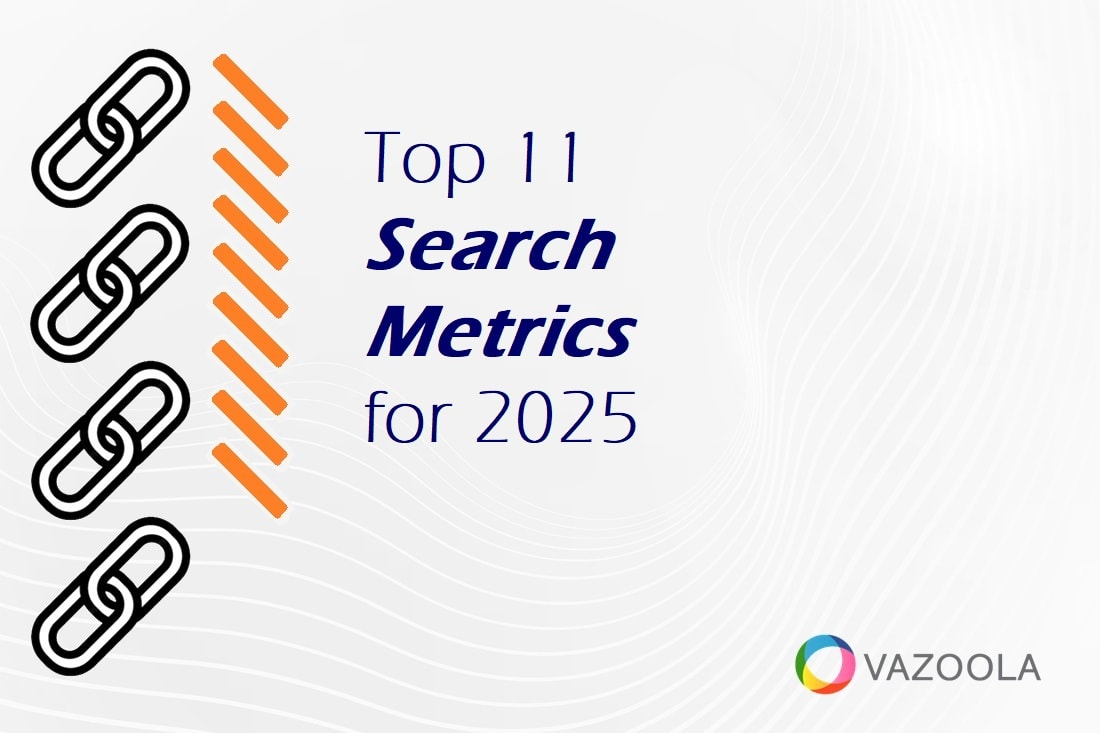
Do you know how to measure SEO success? What about how to evaluate SEO?
You probably already know how important it is to monitor the right SEO KPIs. How else can you understand how well your website is performing with search engines and if your strategies yield desired results?
But what KPI s should you focus on, and what do they tell you about your SEO campaign?
We have highlighted some of the key SEO KPIs in 2025 to get you started. We’ll explain what each metric means, how to measure SEO, and why it matters.
By the end, you'll know precisely what SEO KPIs to track for measuring SEO success and how they all fit together in the context of your overall SEO success.
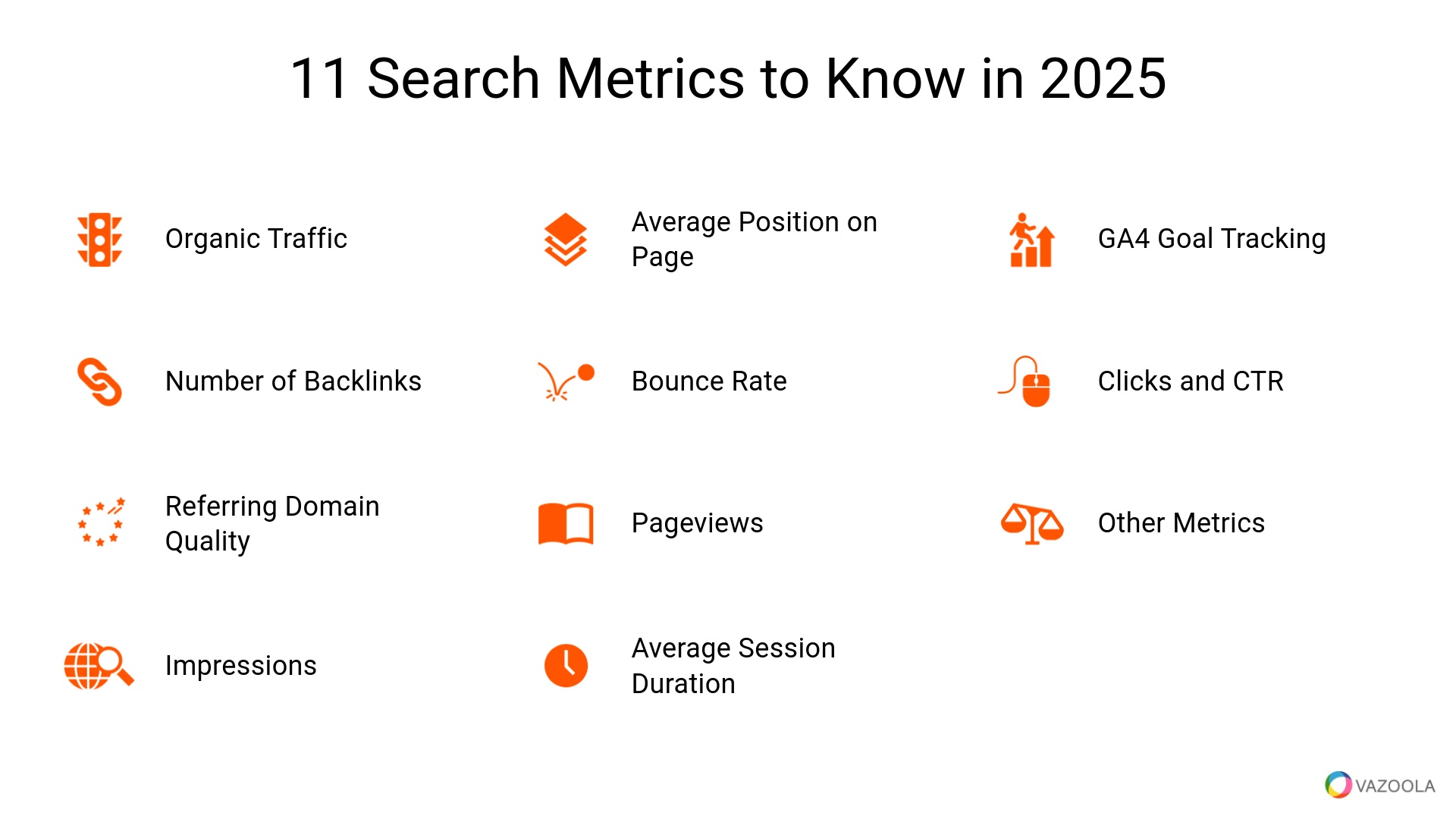
Key Takeaways: How to Measure SEO Performance and Website Metrics
-
Learn key performance indicators that help track SEO success.
-
Understand the importance of user engagement metrics alongside traditional SEO KPIs.
-
Discover how conversion site metrics offer insights into the effectiveness of your SEO strategy.
-
Understand what search engine performance metrics to track and how to interpret key SEO metrics like impressions, bounce rate, and conversions.
-
Learn how quality backlinks and user engagement can significantly impact your SEO performance.
Table of Contents
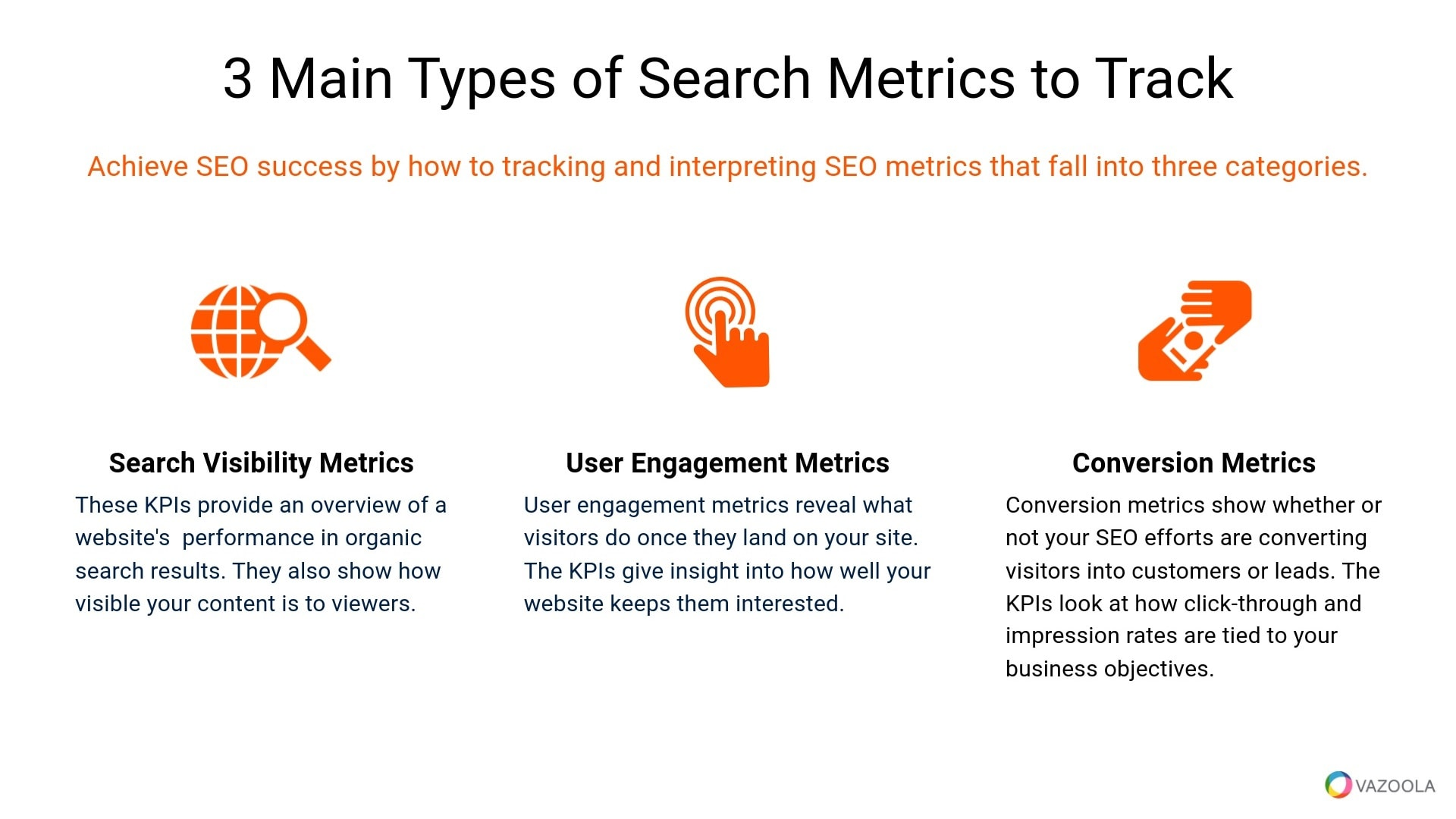
Search Visibility Metrics
What is a search visibility metric? Well, they are the very fundamentals of any SEO strategy. These KPIs for SEO provide an overview of the performance of a website in organic search results. They also show how visible your content is to viewers.
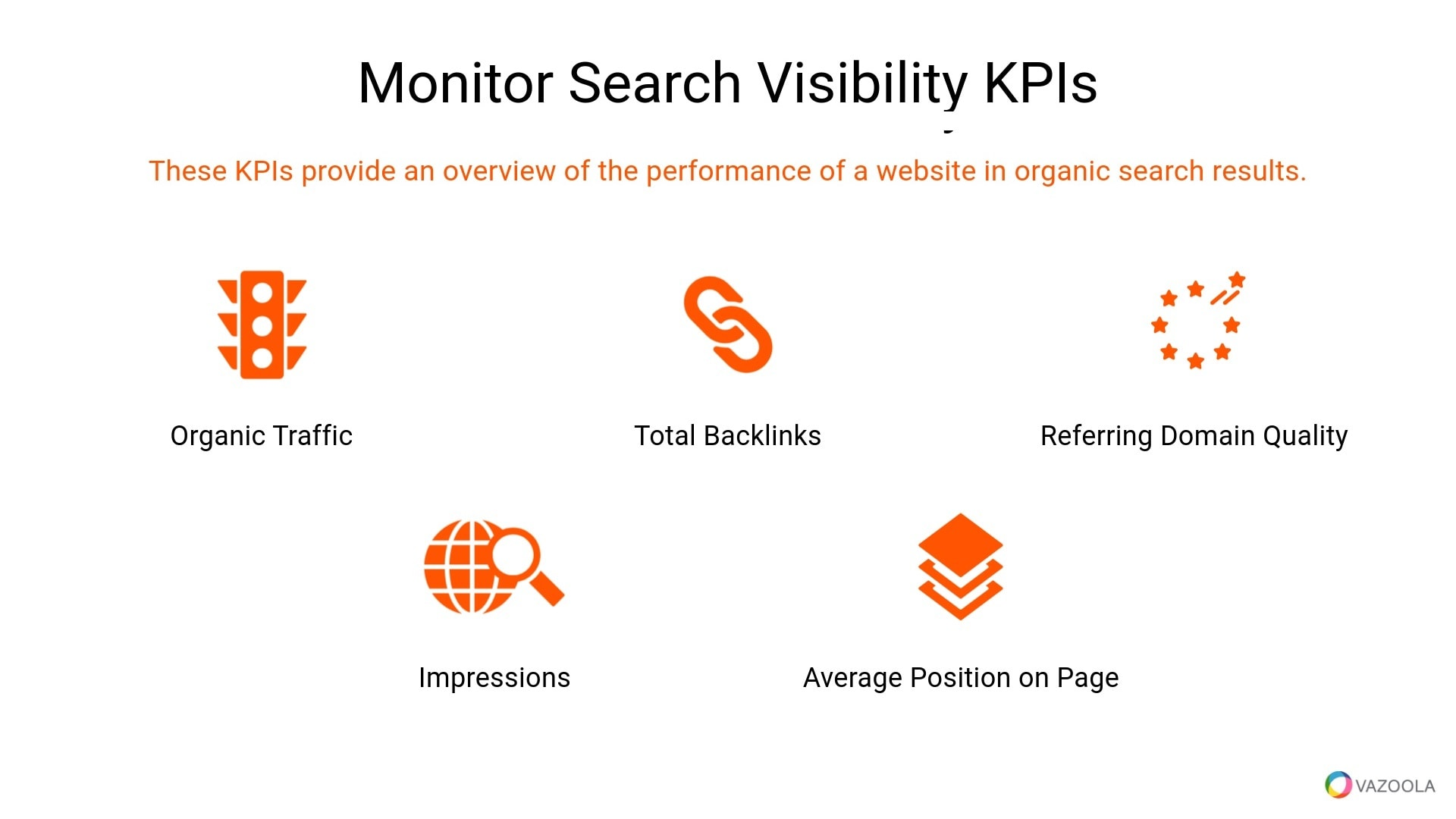
Organic Traffic
Do you know how to measure traffic to a website?
Organic traffic is any SEO strategy's bread and butter. This is the size of the audience that reaches your website from non-paid search results as opposed to paid search.
Organic traffic can denote how well your content is ranking on search engines like Google. Through Google Analytics and Google Search Console, you can obtain accurate data about your organic traffic.
Measuring search analytics like the growth in organic traffic over time helps businesses evaluate the success of their SEO efforts.
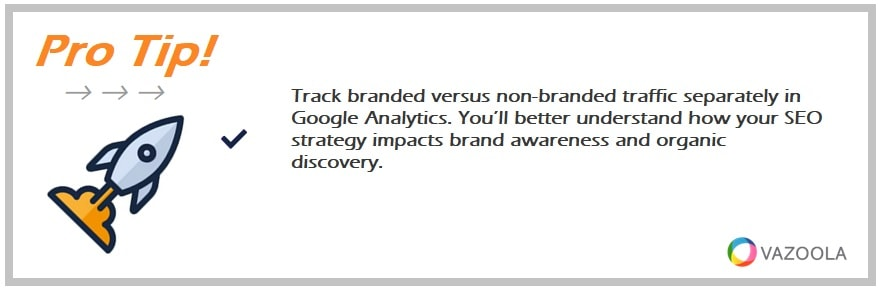
Track branded versus non-branded traffic separately in Google Analytics. You’ll better understand how your SEO strategy impacts brand awareness and organic discovery.
Number of Backlinks
Backlinks remain a core SEO metric. The number of backlinks shows how many external websites link to your web pages. It's a good indication of your credibility and authority in Google's eyes.
Not all backlinks are created equal, though. You have to consider the relevance and authority of referring domains. Using backlink analysis tools like Ahrefs or Moz can track the number of links with a breakdown of their quality.
If you’re wondering, “How many backlinks do I need to rank,” we’ve got the answer in this guide.
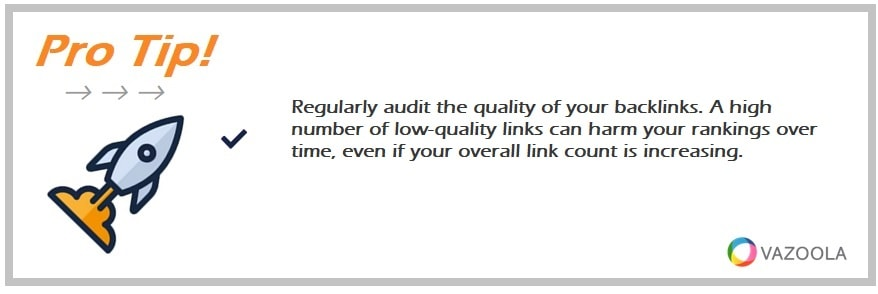
Regularly audit the quality of your backlinks. A high number of low-quality links can harm your rankings over time, even if your overall link count is increasing.
Quality of Referring Domains
A multitude of backlinks means nothing if they aren’t from quality sources. In fact, Google's algorithm prefers to see backlinks from authoritative websites related to your niche.
Our 7 Ways to Build High Domain Authority Backlinks offers SEO insights into how you can improve the quality of your referring domains. This data gives SEO experts and marketers a clear picture of how reputable their sites appear to search engines.
Impressions
Impressions are the number of times your website appears in search engine results pages. SEO tracking like monitoring impressions gives you insight into your site’s visibility and exposure.
Google Search Console offers online search metric figures that let you know how many times your site appears before users in SERPs. Good keyword optimization might come with a higher number of impressions, even if the site hasn't hit the top of the search results yet.
Average Position
What else can you do with organic search analytics?
Another valuable KPI metric for SEO is the average position of your website in SERPs for specific keywords. This data really shows where your content stands compared to your competitors. You definitely want to rank higher for your targeted keywords.
A better ranking means more organic traffic. Google's Search Console provides tools to track the average position of your pages over time.
Monitoring shifts in this metric helps marketers better understand what impact their SEO strategies have on search rankings.
To elevate your average position in SERPs, employ additional SEO tactics. Consider how to check keyword rankings and other SEO ranking factors.
User Engagement Metrics
While search visibility drives users to your website, user engagement metrics reveal what they do once they land there. These search engine KPI examples show how visitors spend time with your content, giving insight into how well your website keeps them hooked.
Knowing these metrics – key among them bounce rate and session duration, and others – will foster a better user experience that keeps your audience coming back.
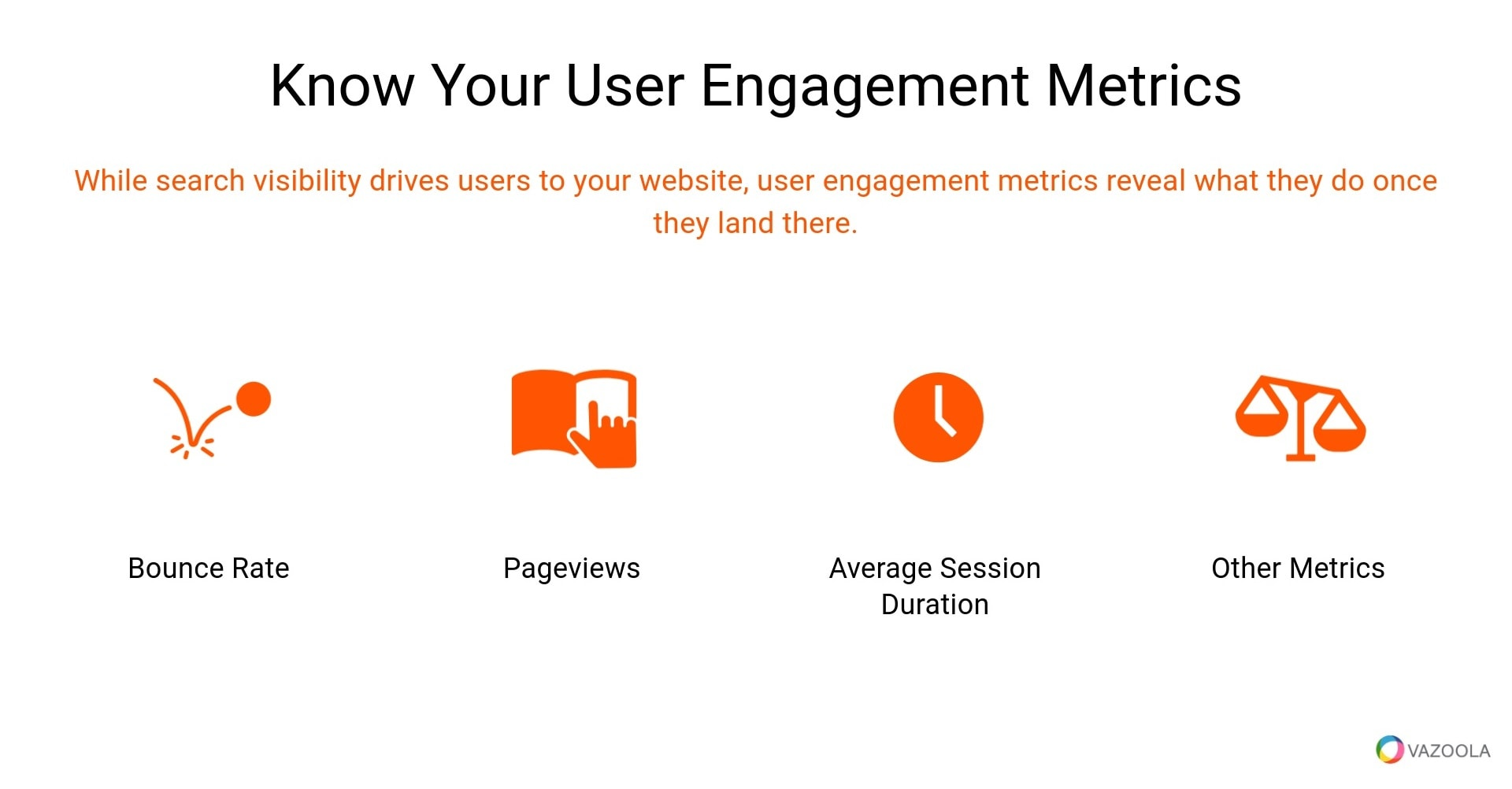
It’s important, however, that you prioritize engagement on your owned media over “rented” media such as social media sites like Facebook and Instagram. Building an audience on those platforms – while beneficial for brand recognition – is less valuable than engagement on your own site. Unless, that is, you’re selling products or services directly on those platforms.
Bounce Rate
The bounce rate refers to the number of visitors who arrive on your website and leave without taking any other action. A high bounce rate may indicate that a page is not offering relevant or interesting content.
Reducing your bounce rate should be a focus for anyone looking to improve SEO performance. This could be through optimizing the content and improving speed or even ensuring that your pages work well on mobile phones.
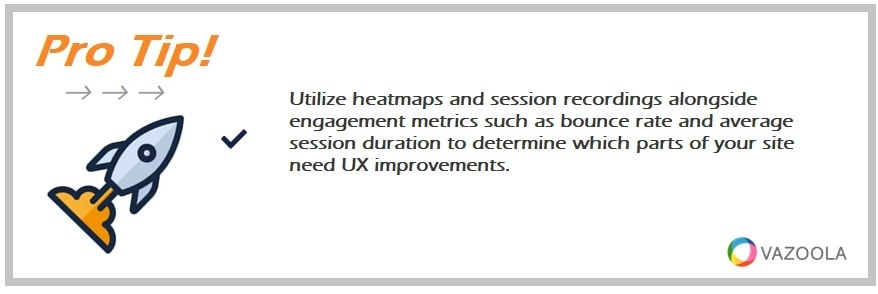
Utilize heatmaps and session recordings alongside engagement metrics such as bounce rate and average session duration to determine which parts of your site need UX improvements.
Pageviews
Pageviews are the total number of pages viewed by visitors on your website. A higher number of pageviews suggests users find your content useful, and they’re exploring other parts of your website. Tools like Google Analytics track pageviews, and that metric offers insights into how engaging your website is to visitors.
Average Session Duration
This SEO KPI tracks the time users spend on your website during one session. Generally speaking, a high session duration indicates that visitors consider the content of your website valuable and thus worth staying on for.
If the session duration is low, keep refreshing your content to make it more relevant. Or, add elements like videos or interactive media that keep visitors longer on your site.
Other Metrics
Beyond that, of course, there are other metrics that help you understand what users do on your website and how they interact with it.
Metrics such as time on page and pages visited are useful for measuring SEO performance, but their SEO effectiveness really does vary depending on your specific goals.
Conversion Metrics
Conversion metrics show whether or not your SEO efforts are converting visitors into customers or leads. These KPIs look past the click-through and impression rates to actions directly tied to your business objectives. That might include form submissions, sign-ups, or purchases.
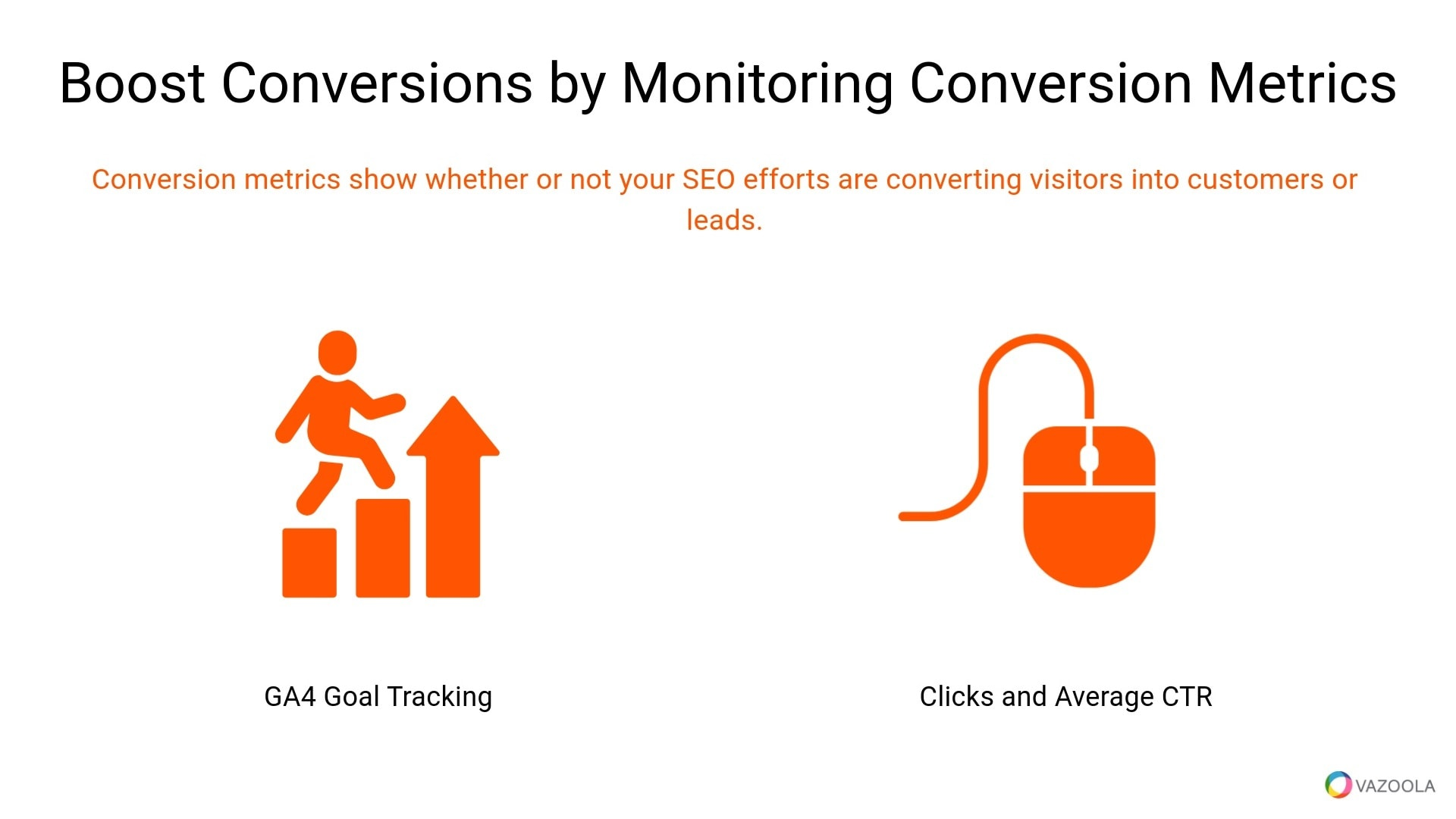
Goal Tracking in GA4
Conversions are the ultimate metric of success for any SEO campaign. They are useful in determining if your visitors perform certain desired actions, such as filling out a form, subscribing to a newsletter, or making a purchase.
GA4’s goal-tracking feature helps marketers set specific goals and track completed conversions. Setting up conversion tracking makes sure you’re not just driving traffic but converting that traffic into leads or customers.
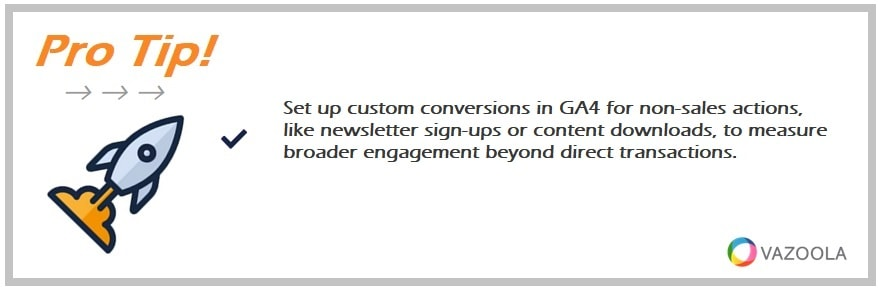
Set up custom conversions in GA4 for non-sales actions, like newsletter sign-ups or content downloads, to measure broader engagement beyond direct transactions.
Clicks: Total Clicks and Average CTR
Clicks are an SEO measurement that show how many people clicked through to your site from the SERP. The click-through rate is the ratio of clicks to impressions.
A higher CTR suggests your title tags and meta descriptions are effectively attracting users and compelling them to visit your site. Tools like Google Search Console help track CTR, so it’s easy to analyze how well your website's snippets perform in search results.
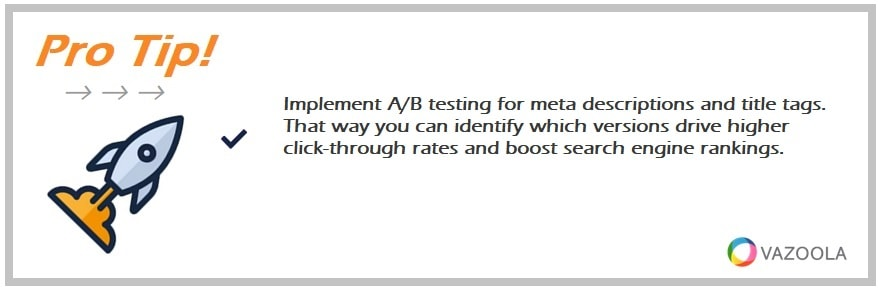
Implement A/B testing for meta descriptions and title tags. That way you can identify which versions drive higher click-through rates and boost search engine rankings.
What Do All Those KPI SEO Metrics Mean?
SEO KPIs are calculated by analytics tools – like Google Analytics and Search Console – but knowing how they work helps in understanding the SEO data.
A number means little without context. A high bounce rate for some blog posts is quite acceptable – visitors simply get the information they came for and leave. But the same bounce rate may signal a problem for your homepage or product pages.
Furthermore, increased organic traffic is generally a positive, but if the engagement metrics are low – for instance, time on page or session duration – then the traffic is not relevant. CTR is important because a small percentage may mean unattractive meta description or title tags.
When it comes to keyword rankings, it's all about quality over quantity. You might reach No. 1 ranking for a long-tail keyword, but the number of visitors will be lower. However, they're going to be more likely to convert due to specificity in their search.
Meanwhile, ranking to page 2 for an extremely competitive short-tail keyword will see far more visibility but drive fewer targeted visitors. That being said, to realize long-term SEO success, both types of rankings are necessary.
Tying Site Metrics Together: Where Should My Data Live?
It can be a real challenge managing SEO KPIs that are scattered across a variety of different platforms. Fortunately, Google Looker Studio, previously known as Data Studio, offers a great way to consolidate your data across multiple tools, including Google Analytics and Google Search Console, or even third-party integrations like Mailchimp, SEMrush, and even Facebook.
The tool comes in handy, as it lets you visualize all your SEO KPIs in one place, and it gives a full representation of a campaign’s performance. Using this kind of tool, therefore, makes spotting trends, spotting issues, and making data-informed decisions for future strategies in SEO all the easier.
How can you answer the question, “What is SEO analytics, and what do I do with it?” What about answering, “How is SEO calculated?” With that knowledge in hand, you're well on your way to SEO success.
Now you know how to evaluate SEO and how to measure SEO results. Next step… sales!
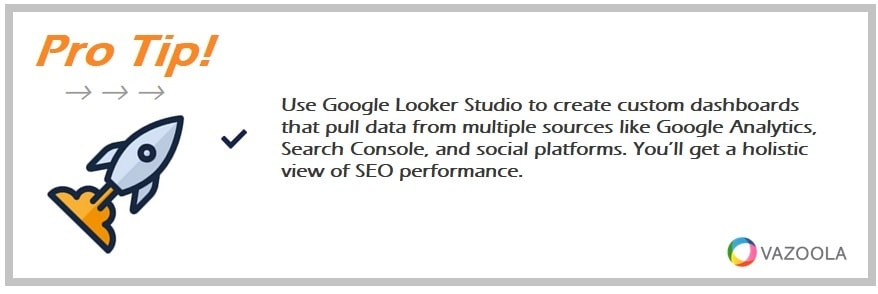
Use Google Looker Studio to create custom dashboards that pull data from multiple sources like Google Analytics, Search Console, and social platforms. You’ll get a holistic view of SEO performance.

